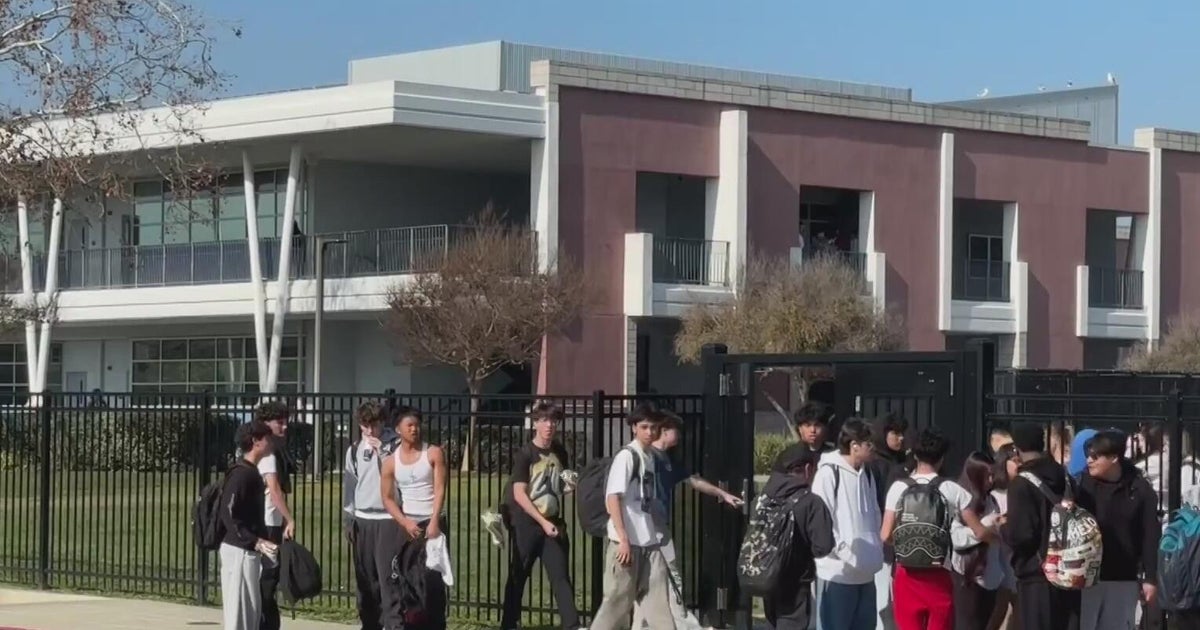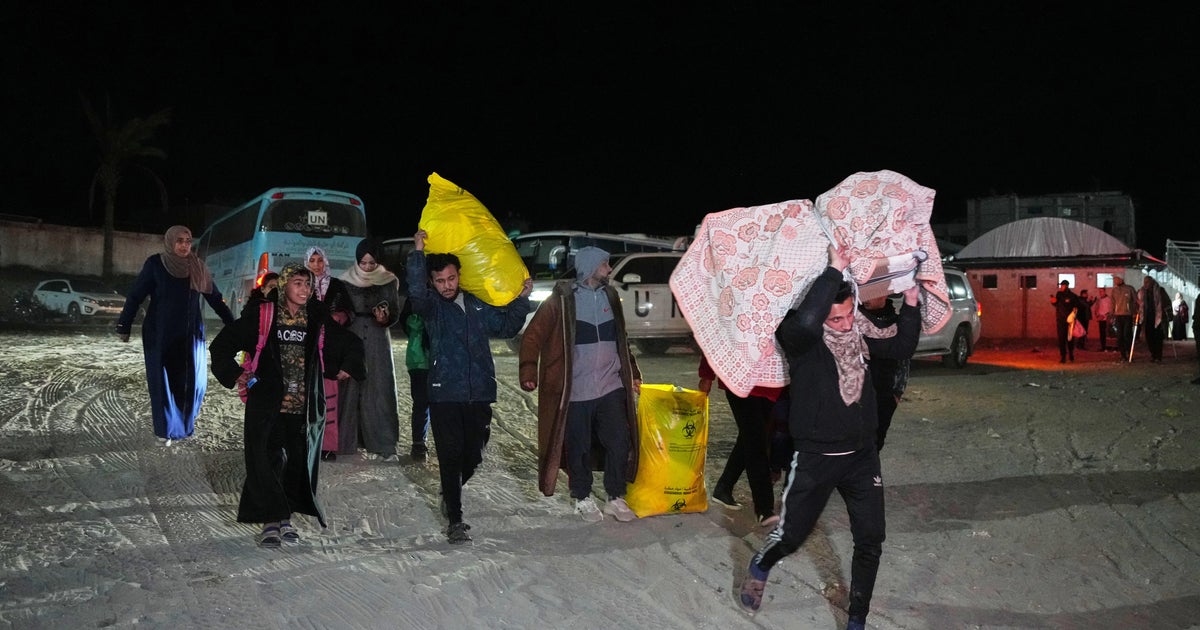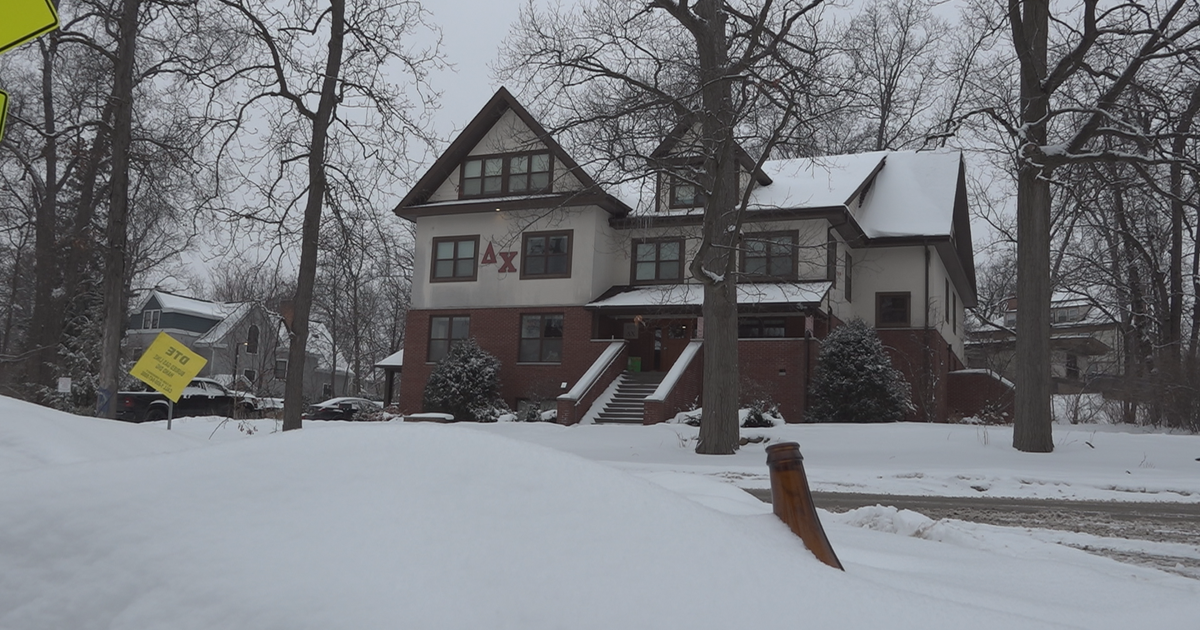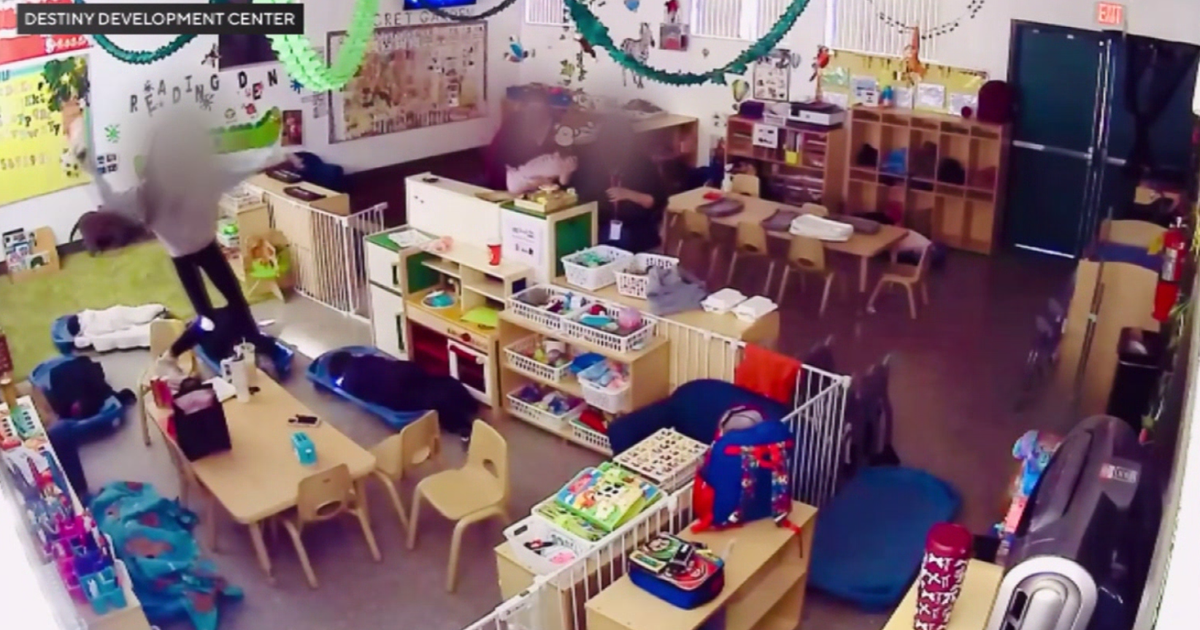American Students Abroad Told To Avoid Protests
MINNEAPOLIS (AP) — Every year American colleges and universities send more than 270,000 students to study abroad and more of them are choosing unconventional destinations, which in places like Egypt can entice students to ignore well-meaning warnings from back home and plunge into the political upheaval in the streets.
"I think the temptation is there, to wrap up in a keffiyeh and try to look like any other Egyptian revolutionary, to feel a little exhilaration from a kind of danger you don't get in America," said Wittney Dorn, 20, of Appleton, Wis., who is studying at the American University in Cairo.
Universities have been repeating the importance of striking the right balance between safety and cultural immersion after the Nov. 20 arrest of three American students during the protests near Tahrir Square, the Cairo roundabout that has been the epicenter of the Jan. 25 uprising against ousted President Hosni Mubarak.
Dorn said in an email from Cairo that she's been following the advice she got from both from American University and her home college, St. Olaf in Northfield, to avoid crowds, political demonstrations and Tahrir Square specifically.
"It's not a brilliant idea to go exploring an area where people are being killed, despite how tempting it may be to watch history unfold before one's eyes," Dorn wrote.
A survey earlier this month from the nonprofit Institute of International Education found more than 270,000 U.S. students studied abroad during the 2009-10 school year, up about 4 percent from a year earlier. Most went to western Europe: Britain, Italy, Spain and France. But the survey found increasing numbers in less traditional destinations; Egypt, for example, hosted 1,923 Americans, up 8 percent.
"A lot of students are trying to find places that will help them understand the emerging world," said Peggy Blumenthal, who oversees research at the institute as the senior counselor to the president. They are preparing for careers in public health, the sciences and national security, for example, she said.
Blumenthal said she doubted students who picked more challenging programs were any more likely to ignore security guidelines than others. "I honestly think that it's not just about going abroad to these places for thrill seeking, as much as it's about really wanting to understand," she said.
Many universities and operators of study abroad programs have been trying to prod students out of what can become a comfort zone of huddling with their fellow American students. That push to engage can be broadening in a "safe" country; in a country with a suddenly dicey political situation, it can be hazardous.
"Sometimes you have to take limits to your full immersion for safety's sake," said Eric Lund, director of off-campus studies at St. Olaf College, a liberal arts college about 35 miles south of Minneapolis, where nearly 70 percent of the class of 2011 studied abroad.
The three students were arrested during a demonstration near the American University in Cairo's main campus. Egyptian officials said they arrested the students on the roof of a university building and accused them of throwing firebombs at security forces fighting with protesters.
Derrik Sweeney, 19, denied it. He said he and the other Americans were with a group of protesters on the street near the Interior Ministry and fled when police dispersed the crowd. He said they were arrested, beaten, threatened and forced to lie with their hands bound in the dark for several hours.
Sweeney is from Jefferson City, Mo. He was arrested with Luke Gates, 21, who attends Indiana University and is from Bloomington, Ind., and Gregory Porter, 19, who studies at Drexel University and is from Glenside, Pa. They were released and arrived back in the United States on Saturday.
"I still don't regret having gone to the protests," Sweeney said. "I would have regretted it if I had gone to Egypt and never had gone to a protest."
He said the American University and the U.S. State Department had advised against attending the demonstrations, but he went anyway — including one in early September and one the Friday before he was arrested.
"I value democracy and liberty, so I wanted to go to those protests more to witness them and to see them than to participate in them," Sweeney said. "I wanted to see history being made."
So did Katrina Gray, 22, of Madison, Wis., who was finishing a year of study in Alexandria, Egypt, when she was evacuated in January after protests broke out all over the country. "This is a huge part of history that happens only once in a lifetime," she said.
But the University of Wisconsin-Madison student said she understood why it was time to go. The situation had deteriorated to the point that the university had told students not to leave their apartments. So she didn't think of defying the university's evacuation because "my mother would have killed me," she said.
Georgetown University still has six students in Cairo, said Stacy Kerr, a spokeswoman for the university. "We have reiterated our policy to our students who are still in Cairo, that they should not be participating in the protests," she said.
Indiana University spokesman Mark Land said the arrests may prompt the university to re-examine its study-abroad programs, which already advises students before they go abroad to avoid politically unstable situations and "not to get into any tight spots."
Despite the risks, Dorn, the St. Olaf student in Cairo, said she had no regrets about deciding to study in Egypt.
"Initially my reason for wanting to study in Egypt was to learn Arabic," she wrote. "However, as a political science major, I have the opportunity of a life time. I am able to witness firsthand the potential beginning of a new, true democracy, and interact with people who are part of the process — it's remarkable."
(© Copyright 2011 The Associated Press. All Rights Reserved. This material may not be published, broadcast, rewritten or redistributed.)







